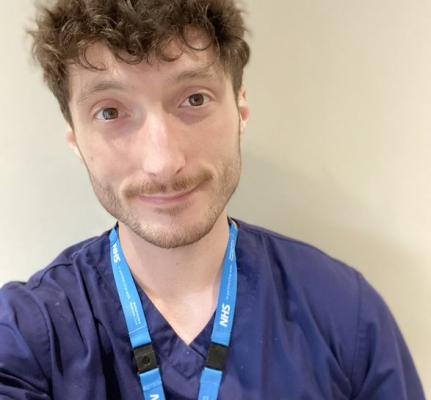Physician associate
Physician associates support doctors in the diagnosis and management of patients.
As a physician associate, you might work in a GP surgery or be based in a hospital, but wherever you work, you'll have direct contact with patients.
Working life
You’ll be a graduate who has undertaken postgraduate training and you'll work under the supervision of a doctor. You’ll be trained to perform a number of day-to-day tasks including:
- taking medical histories from patients
- performing physical examinations
- diagnosing illnesses
- seeing patients with long-term chronic conditions
- performing diagnostic and therapeutic procedures
- analysing test results
- developing management plans
- provide health promotion and disease prevention advice for patients.
Most physician associates currently work in general practice, acute (internal) medicine and emergency medicine.
Liam Black
Physician associate
Read Liam's storyI’ve always had an interest in medicine from being young and I was influenced by my nan who was a nurse many years ago.

Entry requirements
You’ll usually need a bioscience-related first degree to get onto one of the training programmes available. Undergraduate integrated Master of Physician Associate Studies programmes are now available and these courses require A-levels or equivalent for entry.
Alternatively, if you’re a registered healthcare professional such as a nurse, allied health professional or midwife you can also apply to become a physician associate. There is also a level 7 apprenticeship for physician associates. Apprenticeships give you the chance to earn a living while gaining your qualification.
Must have skills
Don’t forget – academic qualifications aren't everything. You’ll need to be able to demonstrate experience of working with the public, an interest in health or social care, the right values to work for the NHS and excellent communication skills.
Training and development
Physician associate training usually lasts two years, with students studying for 46-48 weeks each year and involves many aspects of an undergraduate or postgraduate medical degree. The training focuses principally on general adult medicine in hospital and general practice, rather than specialty care.
There will also be 1,600 hours of clinical training, taking place in a range of settings, including 350 hours in general hospital medicine. You'll also spend a minimum of 90 hours in other settings including mental health, surgery and paediatrics. You may be eligible to receive some funding but financial arrangements differ between universities so you'll need to contact them to see what might be available.
With further training and/or experience, you may be able to develop your career further and apply for vacancies in areas such as further specialisation, management, research, or teaching.
Pay and benefits
Your standard working week will be around 37.5 hours with the need to work flexibly over a seven day period. As a physician associate, you’ll be paid on the Agenda for Change (AFC) pay system, typically starting on band 7 with internships starting at band 6.
You’ll also have access to our generous pension scheme and health service discounts, as well as 27 days of annual leave plus bank holidays.
Displaying 21 - 25 of 32 matches
Physician Associate Studies (MSc top up)
University of Birmingham
View courseOpens in a new window
- Qualification
- MSc top up
- Duration of the course
- 4 Months
- Leading to a career in
- Physician associate studies
- Contact details
- [email protected]
- Region
- West Midlands
- Admissions address
- Edgbaston
Birmingham
B15 2TU
England
MSc Physician Associate
University of Reading
View courseOpens in a new window
- Study mode
- Full-time
- Duration of the course
- 2 years
- Leading to a career in
- Physician associate studies
- Contact details
- +44 (0)1189875123
- Region
- South East
- Admissions address
- University of Reading
Whiteknights
PO Box 217
Reading
Berkshire
RG6 6AH
United Kingdom
Physician Associate Studies MSc
De Montfort University
View courseOpens in a new window
- Study mode
- Full-time
- Duration of the course
- 2 years
- Leading to a career in
- Physician associate studies
- Contact details
- +44 (0)116 255 1551
- Region
- East Midlands
Physician associate studies
Bangor University
View courseOpens in a new window
- Study mode
- Full-time
- Duration of the course
- 2 years
- Leading to a career in
- Physician associate studies
- Contact details
- [email protected] +44 1248 351 151
- Region
- Wales
- Admissions address
- Bangor,
Gwynedd,
LL57 2DG, UK
Physician associate studies
Brighton and Sussex Medical School
View courseOpens in a new window
- Study mode
- Full-time
- Leading to a career in
- Physician associate studies
- Contact details
- [email protected]
- Region
- South East
- Admissions address
- BSMS Teaching Building
University of Sussex
Brighton
East Sussex
BN1 9PX




